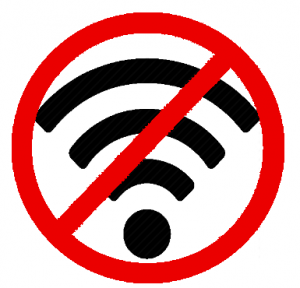
FCC's Wi-Fi Blocking Rules Apply to Hospitals
Published on March 27, 2015

A few months ago, Marriott International made headlines when they blocked consumers’ Wi-Fi networks at the Gaylord Opryland Hotel and Convention Center in Nashville. Following a complaint from an individual who had attended a function at the convention space, the FCC discovered that Marriott employees had used “containment features of a Wi-Fi monitoring system” to prevent individuals from connecting to the internet via their personal Wi-Fi networks. At the same time, the hotel charged customers up to $1,000 per device to access Marriott’s wireless network. Following a formal investigation by the FCC, Marriott admitted to deploying deauthentication protocol technology and settled by paying a fine of $600,000.
Aside from hotels, Wi-Fi blocking is also a concern in healthcare. In the last few years, hospitals have increasingly provided IT network connectivity, much of it wirelessly, to medical devices due to government incentives and relatively recent access to wireless technologies like Bluetooth Low Energy (BLE) and Enterprise Grade Wi-Fi. According to the FCC, Wi-Fi blocking rules also apply to hospitals and other healthcare facilities. In an article by FierceWirelessTech, a FCC spokesman confirmed to the Association for the Advancement of Medical Instrumentation (AAMI) that the same Wi-Fi blocking rules extend to hospitals and healthcare facilities. While infrastructure providers may claim the FCC rules revoke their rights to protect their Wi-Fi infrastructure, “the FCC rules never granted those rights to begin with… Whether people see it or not, whether they understand it or not, whether you like it or not, the FCC’s rules are far more a protection than a hindrance,” said Rick Hampton, the wireless communications manager at Partners Healthcare System in Boston, to FierceWirelessTech.
Wi-Fi has great benefit for users in medical and other applications, but it’s important that the infrastructure and the medical device be designed to accept interference. Wi-Fi solutions specifically designed for enterprise environments can be set to roam to unaffected channels without a loss of communication. Laird Wi-Fi solutions are designed for the enterprise and operate in challenging environments like hospitals. The increasing number of wireless medical devices in hospitals drives the vision of a connected hospital. A connected hospital is a fully integrated hospital where wireless technology allows caregivers and patients to roam throughout the hospital while providing accurate and timely monitoring. In a connected hospital, caregivers can focus on providing the best quality of care to their patients, instead of on administrative tasks. To learn more about the Connected Hospital and how Wi-Fi can enable communication for mobile computers and medical devices, visit our Connected Hospital page.
Subscribe to the Wireless Connectivity Blog to stay up to date with current events, trends, and product updates regarding Bluetooth/BLE, Wi-Fi, and RAMP modules.
 Laird Connectivity is now Ezurio
Laird Connectivity is now Ezurio